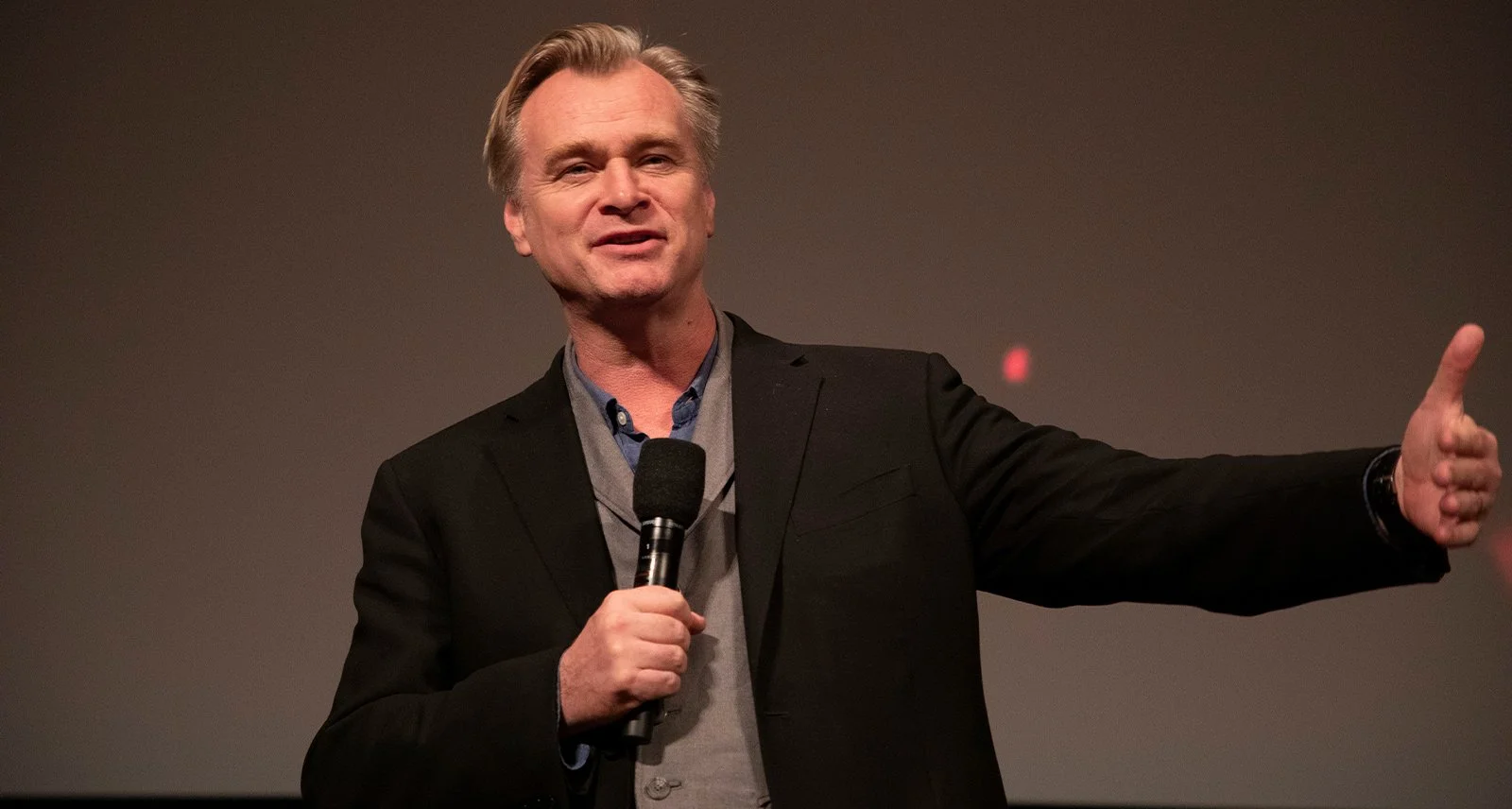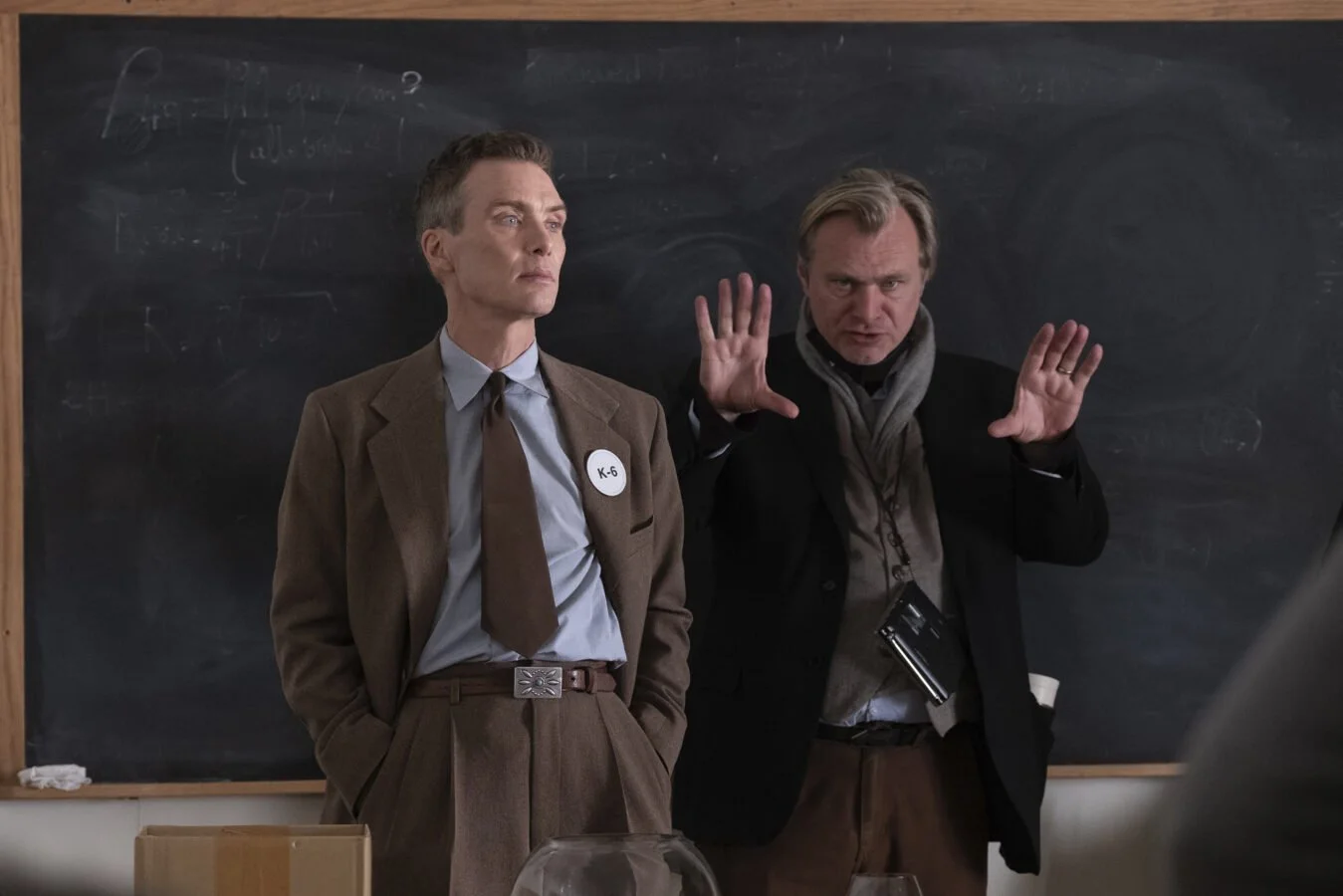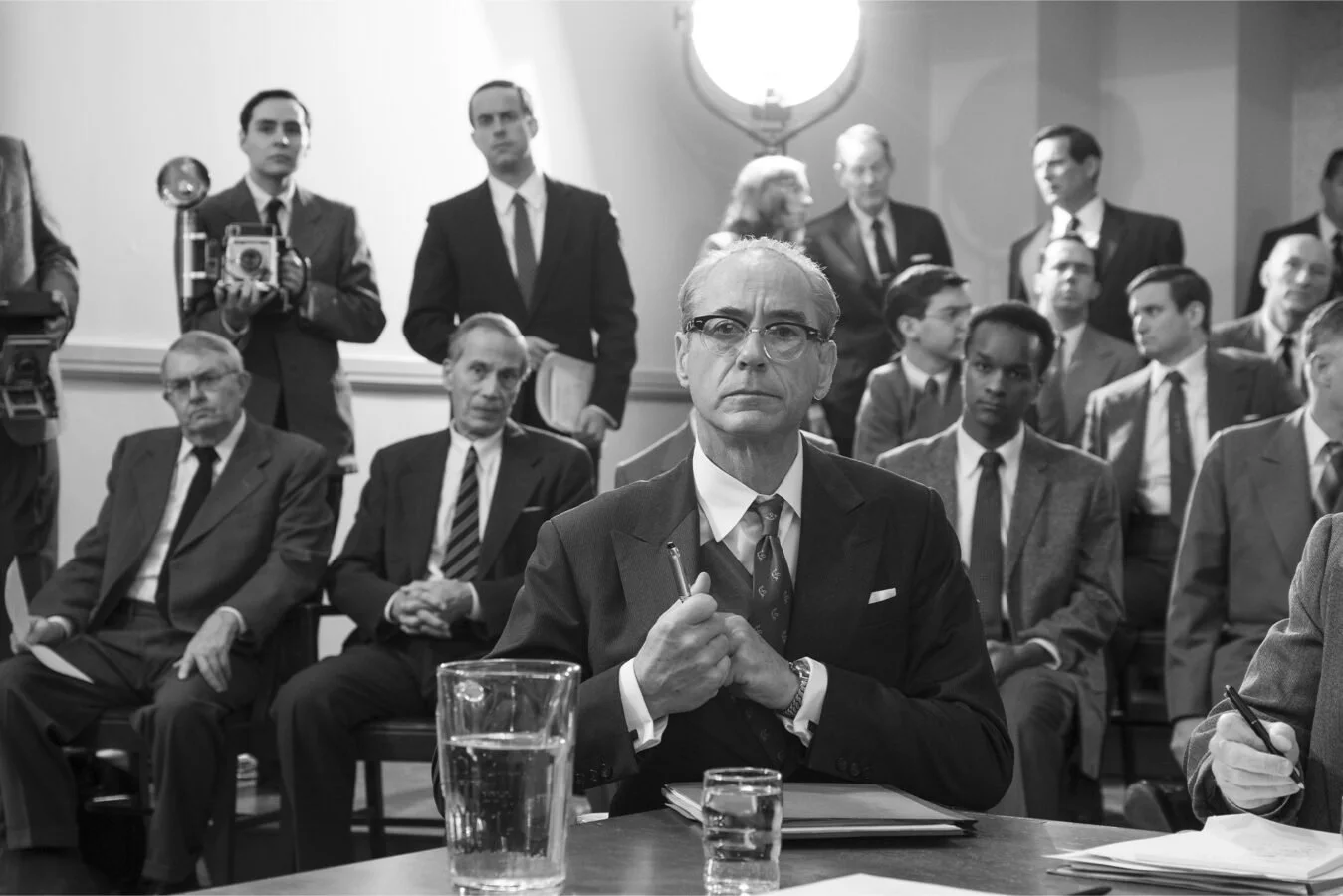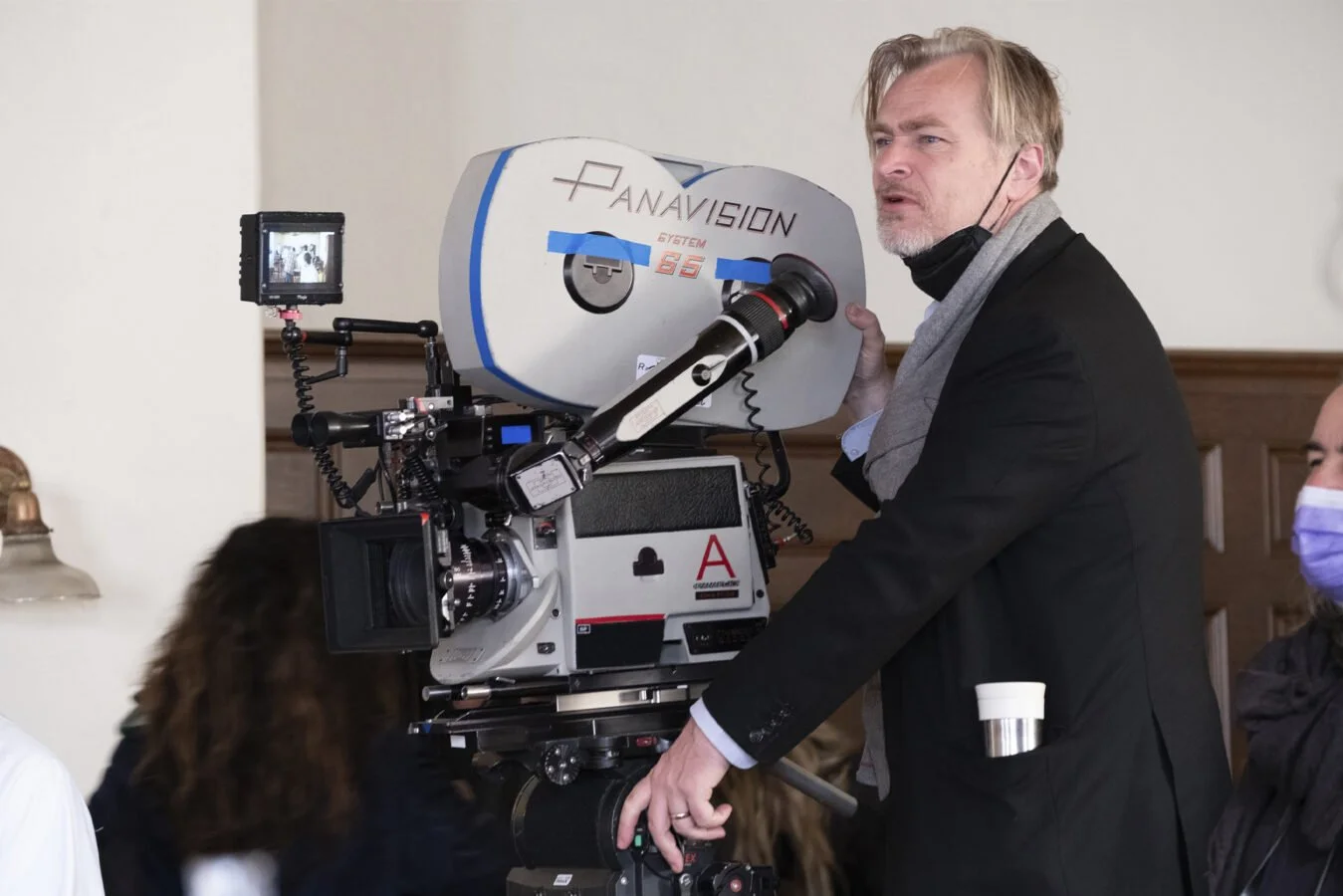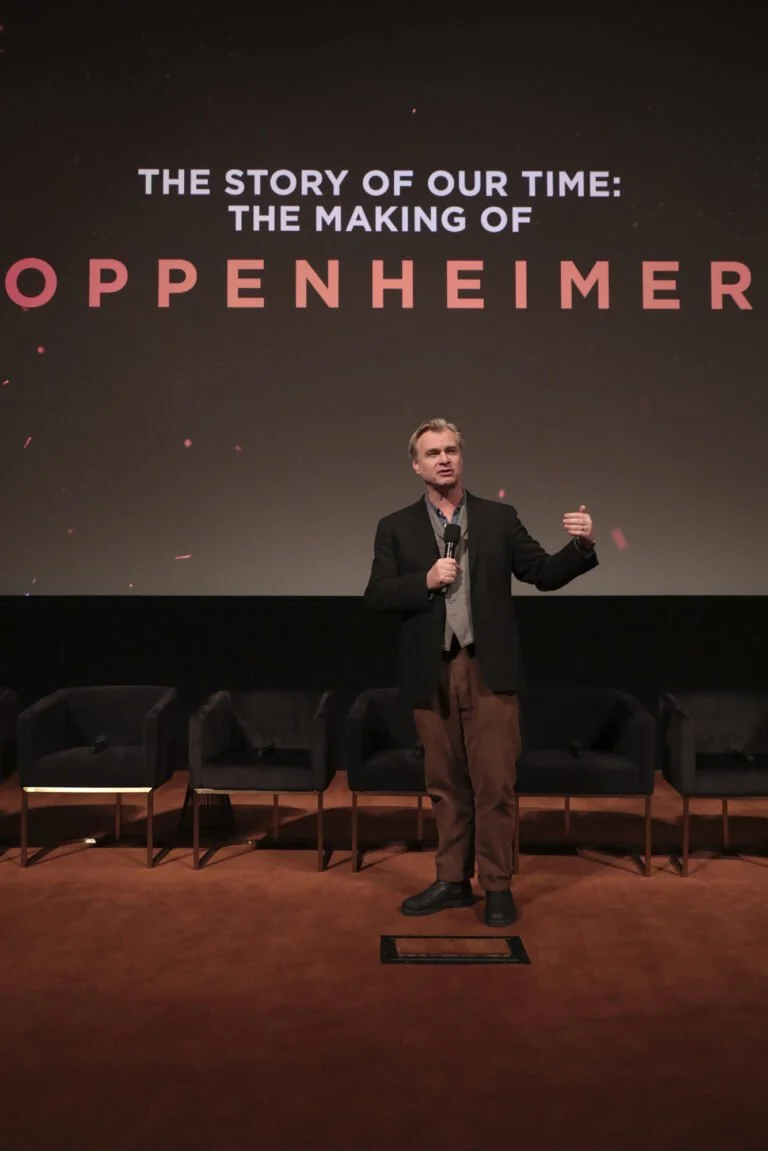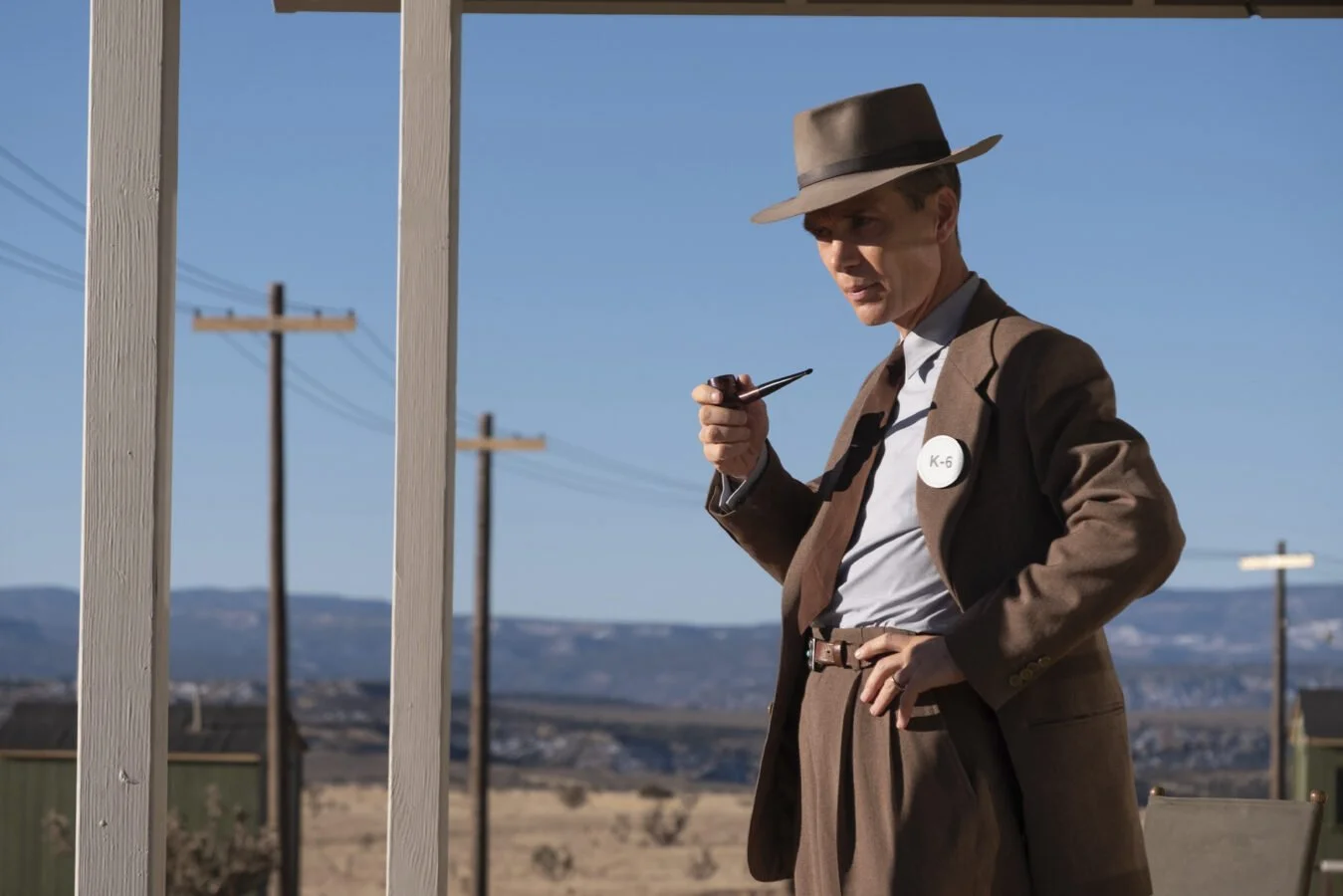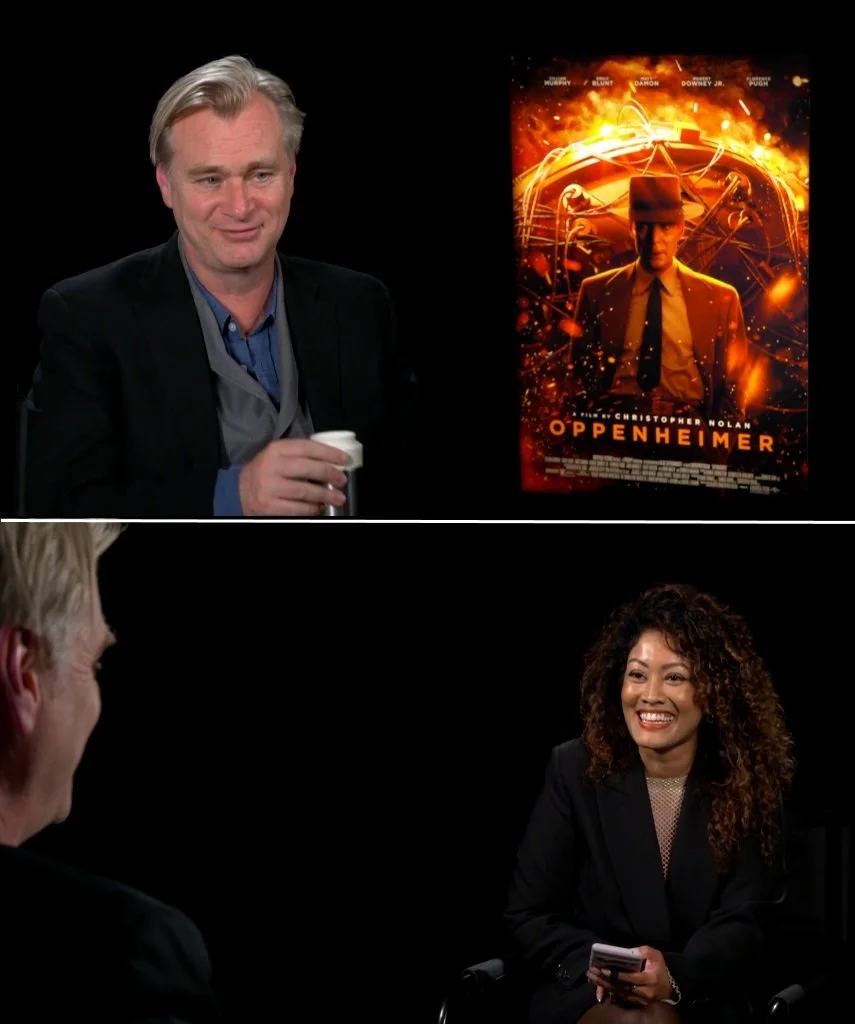Exclusive: Christopher Nolan on ‘Oppenheimer,’ Filmmaker Fears, and Telling a Great Story
Oppenheimer is no doubt, for a lack of a better term, a cinematic masterpiece, about the man and the moment that changed the world forever, J. Robert Oppenheimer. It is fitting that the film is executed by the man who reshaped cinema with his blockbuster movies, Christopher Nolan. His films, including Oppenheimer, Tenet, Dunkirk, Interstellar, Inception and The Dark Knight trilogy, have earned more than $6 billion at the global box office.
Oppenheimer gives a bold and nuanced portrayal of a complex, contradictory figure in history. It thrusts audiences into the mind of theoretical physicist J. Robert Oppenheimer (played spectacularly by Book For Men cover alum Cillian Murphy), whose landmark work as the director of the Manhattan Project’s Los Alamos Laboratory created the first atomic bomb. The movie is equal parts beautiful and terrifying, and when filmed on IMAX 65mm, it fully immerses movie goers in the cinematic experience.
In the only Canadian exclusive print and digital interview Nolan did for Oppenheimer, I landed an exclusive for SHARP magazine.
Sitting face to face with Nolan is unnerving. He’s reserved, but attentive and listens in on every question before responding. While he doesn’t enjoy talking about himself and his legacy much, you can tell he enjoys conversation about the magic of movies and his craft as a filmmaker.
We are seated in a Los Angeles hotel, ahead of the world premiere of “The Story of Our Time: The Making of Oppenheimer,” a 70+ minute immersive piece that will be available with the home entertainment release of Oppenheimer on November 21.
Nolan has always believed that in order to make a great film — not just a good film — you have to take a lot of risks. With Oppenheimer, he says the overall conception and execution of the film was the biggest risk. “I knew it would have to be three hours long. I went to Emma [Emma Thomas, producer and wife] early on and explained that rather than trying to get the script shorter, I needed to embrace the length and write a film that would play engagingly over three hours, rather than trying to make a thing that should be three hours stuffed into two. But that is a risk,” he said.
He continued, “The idea that you’re going to shoot a lot of the film on black and white, it’s a very serious subject matter, it’s really mostly people talking and it has to be R rated… those are all things we knew going in. They were a big risk and a big gamble. We went to the studio with it, we were very clear about what the film was going to be and how much money we needed to make it. There were a lot of risks that came with it. Then when we came to make the film, it was really just about executing on that promise, and making the most engaging film we could within those parameters.”
The film is both extremely ambitious and, given the subject matter, a risky project. Given his bold vision for the film, I ask if he had any moments of self-doubt — he is Christopher Nolan, after all.
“Many moments of self-doubt,” he says as he laughs. “The nice thing about being a director is there are all kinds of different processes that you’re engaged with and it takes years to make a film. And so yes, you have days where you’re very much questioning what it is that you do, but then you come back the next day, maybe you’ve slept a bit better, whatever it is, you have a slightly more positive view on it. So you’re always getting a second chance to steer the ship and do things differently. So that gives you confidence that you’ll find a way over time. You’re not sort of stepping up in front of the wicket, having to hit the ball, you know what I mean? It’s much more of a construction process over time.”
Oppenheimer beautifully revels in this interplay of science and technology. But at the very core, it’s a hard look at humanity and what we’re capable of. Nolan has always been fascinated by this theme that seems to be a recurring one in his movies. It it was his second film, Memento, that first evoked the theme (and earned him an Oscar nomination for Best Original Screenplay).
“As human beings, it is the humanity of the film’s stories that interests us the most. I was very fortunate with Memento, for example, to work with Guy Pearce on that film because I think when I constructed that film, I was more interested in the structure of it, the structural conceit, the sort of cinematic qualities of that. But what Guy brought to it was an understanding of humanity. And that film worked, because he brought the audience into the dilemma of the character.”
He shared, “I think I learned from that that however interested you are in the mechanics of the storytelling, or the world you’re creating, it’s the humanity at the centre of it that the audience is most going to grab ahold of and go on that journey.”
Nolan admits that he’s always been a student of his craft. He learns by doing and each film is a stepping stone for him. When budget constraints left Nolan just 57 days to shoot Oppenheimer, for instance, he realized that the faster pace was “engaging and added to the process.” He’s got experience with budget constraints: the 53-year-old filmmaker made his directorial debut at the age of 28 with 1998’s Following on a shoestring budget of just $6,000.
“When we had the usual budget squeeze that you have in pre-production of every film and this film was particularly difficult, it felt like a lot to try and do for the money. We had what I consider a big budget, but it was a lot less than some of our other films. It was under $100 million — which is plenty of money and a healthy budget — but we were trying to tell an enormous story with 60 years worth of period stuff all over the world.”
“At a certain point, what I had to offer, from my point of view, was to make the film quick, so we had to cut the schedule pretty short. We went in about 57 days, which is pretty short for a film of this size. What I learned about my process, and learned working with the actors, working with Hoyte van Hoytema on camera, that actually working on that pace could be engaging and add to the process and not just feel like a continuing compromise. That’s something I’ll definitely take with me — not that I want to try and shoot every film in 50 days. But shooting fast, shooting single cameras, [is something] I like to do and maintaining an energy and a rhythm was definitely very positive.”
Almost a decade ago, Nolan said that he was comfortable being the jack of all trades, doing a little bit of everything as a director without specializing in one area of expertise. Out of sheer curiosity, I ask if that has changed in terms of what he’s most comfortable with as a filmmaker.
He’s quick to answer that it continues. “What I love about my job is that it involves a lot of different disciplines and you don’t have to specialize in one particular thing. I enjoy that tremendously. I think that that keeps me interested, the variety of the processes that I’m engaged in keeps me very interested.”
Nolan not only directed and produced the film, but also wrote the screenplay in the summer of 2021. The film is based on the Pulitzer Prize-winning book, American Prometheus: The Triumph and Tragedy of J. Robert Oppenheimer.
The filmmaker chose to write the script in first person — an unconventional choice for a screenplay. But stepping into the psyche of Oppenheimer certainly helped Nolan jump into his head. “I wanted to tell the story subjectively. I felt like the most dramatic presentation, the most engaging presentation of his story would be to try and see things from his point of view, and using the first person scripted made me think like him, be him in the scenes.”
Having the first-person script on set with his director of photography Hoyte van Hoytema and Cillian Murphy “was a constant reminder of whose story we’re telling, and how we wanted to go about telling it. So even choices like, where you put the camera, so we wound up a lot of close ups, always always trying to push that camera near to him and then see other people more over his shoulder. Those kinds of choices they’re all the things that add up to the feeling of a point of view in a film. I think it guided us towards that.”
It’s no doubt the Oscar-nominated filmmaker knows how to craft intelligent, expansive stories that draw in movie goers. Almost all his films have earned critical and commercial success, nabbing a total of 11 Oscars and 36 Academy Award nominations.
According to Nolan, the secret to making a good movie is simple: engaging the audience in the best way possible. It’s his singular vision as a storyteller and perhaps, it’s his guiding light. “I think the key is really audience engagement, but that can take many forms. So you don’t want to be too prescriptive or didactic, in terms of how that would be done. It’s not really about having a formula or having a particular trick or set of approaches. It’s really about just an honest engagement with the audience.”
He’s always said that it’s the sincerity with which he approaches the film and the hope that it connects with the audience. His biggest fear is that his films won’t have a chance to connect with an audience. He tells me, “I think a lot of your fears, and maybe it’s coming from the independent sector where I started, where just getting distribution from just getting it into theatres, or just getting into the home was a struggle, and a fight.
“So I think your greatest fear is that, for whatever reason, you won’t get the chance for people to view your film. Fortunately with Oppenheimer, we had a very wide release very well supported by the studio and a lot of people got to see it. And now, we’re able to put out at home all these different formats. So that’s one of the joys of doing a film on a large scale is it has its chance.”
While Nolan is known for being a theatre-first filmmaker, he is also a filmmaker of the video generation. He puts a lot of effort into all of the versions of his film. “The great thing about shooting resolution in a format like IMAX film, 64mm films is that it translates very well to the different digital formats, but certainly the 4K UHD if people have access to those television sets or a projector with a 4K UHD that’s a very spectacular way of seeing the film.”
The home entertainment release of Oppenheimer in 4K Ultra HD, Blu-ray and DVD will give fans three hours of exclusive behind-the-scenes footage and extensive interviews with Nolan and his creative collaborators, offering unrestricted access inside the process, performances, effects and music. The 4K Ultra HD and Blu-ray discs are specially designed to include mixed 2.20 and 1.78 aspect ratios that allows audiences to experience the shift in aspect ratio as viewed in select theatrical locations, for the ultimate in-home viewing.
Oppenheimer will be available to own just in time for the holidays on 4K Ultra HD, Blu-ray and Digital on November 21 from Universal Pictures Home Entertainment.
Feature image courtesy of Alex J. Berliner/AB Images for Universal Pictures.

